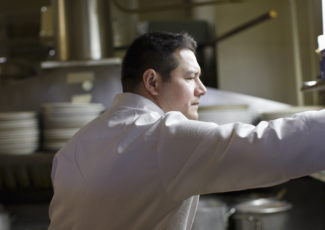Industry Needs Drive New Hospitality Program
By Emily Rogan
May 27, 2016
The Williamson County Convention and Visitors Bureau and its business members were critical to the creation of a new hospitality program at Columbia State Community College.
Despite Williamson County’s proximity to the tourist magnet that is Nashville, Tennessee, no two- or four-year higher education institution in Middle Tennessee offered a hospitality program.
Ellie Chin, president and CEO of the Williamson County Convention and Visitors Bureau, wondered whether such a program would be helpful to local businesses. So she had lunch with the general manager of one of the county’s hotels to find out.
“I asked if we needed a hospitality program,” Chin recounts. “He said, ‘Yes. We don’t have a pipeline, and we are all in dire need.’”
After further conversations with other hospitality businesses, Chin confirmed that entry-level jobs in the hospitality field don’t require a degree, but “[employees] are not going to get promoted or grow in their career without one.”
Chin then reached out to Columbia State Community College and built a partnership that has resulted in a new hospitality program to help local businesses get the quality employees they need.
Engaging the partners
After meeting with Janet Smith, president of Columbia State, Chin was introduced to Shanna Jackson, associate vice president of the college’s Williamson campus. Together, Chin and Jackson laid the groundwork for a new hospitality program. While Jackson worked on curriculum development with one committee, Chin managed the business end, recruiting partners from hotels, restaurants, event-planning companies and local attractions.
They also needed to market the new program to potential students and their parents, educating them on possible career paths and the potential for growth in the hospitality industry. Chin and her team worked with Williamson County high schools to emphasize that the culinary, marketing, finance and management fields all exist under the larger hospitality umbrella.
This summer, several industry partners will offer paid internships to high school students so they can get hands-on work experience with different businesses. The internships are funded by the companies and matched by the local chamber of commerce, up to $15 per hour.
Developing the curriculum
At Columbia State, Jackson and her committee got the new program approved by the Tennessee Board of Regents in just nine months. It will start as a technical certificate “but will grow up one day to be an associate degree; that is the goal,” Jackson says.
Rather than create a program from scratch, Jackson and her team combed through curricula from existing programs elsewhere. With no faculty expert at the college, Jackson relied heavily on her industry partners to choose the program’s courses. “What do you need your employees to have? What courses give them the best opportunity to give you that?” Jackson asked industry partners during the curriculum-development process.
The academic pieces align “when you hear the real need from employers, who are committed to make it work and who have to help sell the program to parents and community,” Jackson says.
Advice for developing a hospitality program
Chin and Jackson offer the following advice to community college leaders interested in launching a similar program:
- Talk to local businesses to see whether there is a need for a hospitality program. Keep them involved in the creation of the program by asking for their input, informing them of the program’s progress and enlisting them as speakers and internship and scholarship providers.
- Designate a college official to be the liaison for industry leaders. Good communication between the college and the industry partners is essential.
- Research what curricula already exists elsewhere. You can probably tweak what’s out there to make it work for the businesses’ needs.
Chin dreams that in 10 years Columbia State’s hospitality program will provide a steady stream of employees to the local industry. “I’m very excited,” she says. “It was a unique opportunity to create this and to see the enthusiasm from the partners, the school and the students.”








